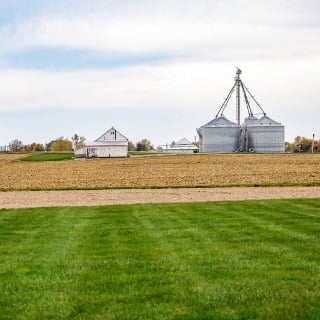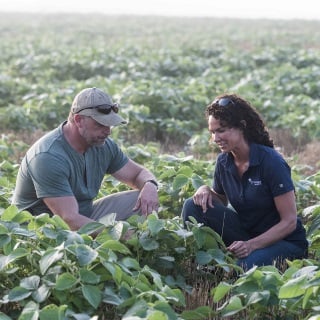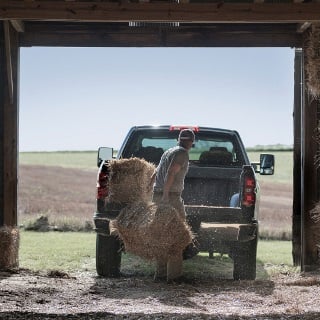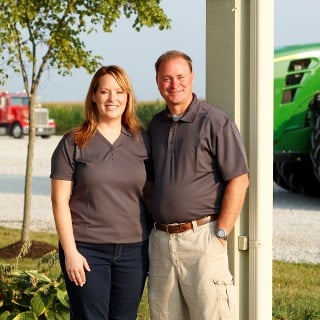By Ed Snodgrass | Senior Financial Officer, Farm Credit Mid-America with Kyle Hannah & Lucas Rector
So, you’ve gotten a few years of producing cattle under your belt and are feeling pretty good about the future. You may even be thinking it’s time to take the next step and grow your operation.
But are you ready? And if so, how do you do go about it?
Deciding when to grow, and how to grow successfully, is an important conversation every cattleman needs to have with themselves and their trusted advisors. In the decades I’ve spent as a financial officer and a cattleman myself, I’ve seen firsthand how operations struggle when they try to expand before they’re ready – and how they flourish when they do it the right way.
I got together with my colleagues, financial officers Kyle Hannah and Lucas Rector, to come up with some tips for young and beginning farmers considering expansion. To start, there are four questions ranchers need to ask themselves before they even think about growing their businesses.
- Is my current business profitable?
- Is it operating efficiently?
- Do I have the ability and capacity to manage additional, cattle, land or employees?
- Is an opportunity presenting itself?
Answering yes to all four of these is non-negotiable for growth. If you can’t, hit pause on those expansion plans and work on strengthening the area(s) that need(s) work until you can get to a “yes” answer. If you aren’t getting the most out of your operation’s current size, it may be easier – and less risky – to get better instead of getting bigger.
Smart growth
If you CAN answer yes to all those four non-negotiable questions, then you’re ready to start growing your operation – preferably in a strategic and thoughtful way. Let’s take a look at what that entails:
First, get your team involved. Talk to your partners, accountants, lenders, mentors, family members and any other trusted advisor who can help you analyze your specific situation. As I’ll touch on later, success looks different for different people. Will growing the business achieve your version of success, and are you equipped to get there? Are you making an emotional decision or is it a truly a sound investment?
As Kyle points out, some farmers will compare their operations to peers in communities and feel pressure to keep up. But is what they are doing right for you? Let your team help you work through those questions so you can build a growth plan that meets your goals.
Next, know the true cost of your operation’s production and your break-even. Acquiring new land, cattle, equipment and labor adds expenses. Rework your business plan to account for new expenses and be sure to focus on profit per unit of production – not just on numbers of acres or head of cattle. Focusing on profit allows you to build working capital and liquidity, which allows you to foster growth.
Also, remember not to grow too fast. Just like you needed to check the four non-negotiable boxes before you decided to grow, you need to stay on top of your progress to ensure you are able to manage what you’ve added. Always get better before you get bigger.
Defining success: It’s not just about money
Finally, what does success mean in your operation? Most producers will believe that success is just being profitable – and for some, it is. But when facing the question of whether to grow, it’s important to look not just at whether that growth will improve your financial position but also align with your values and other responsibilities and priorities. For my operation, success is a balance. I want to produce a premium product while continually improving the land and reserving time for my family. If I’m not doing correct conservation practices, or I’m not meeting my profitability goals, or my relationships are eroding – if any of those things are being sacrificed – it’s really not success.
Be sure to save time for family, faith, community and other endeavors that make life rich. It’s easy to just work, especially for people who derive real joy from doing the work. But there’s more to life than work. If the additional time and effort that comes with expanding the operation consumes your life, it may not be worth it.
There are a lot of easier ways to make a living than being a cattle producer. It’s a low-margin business, to be sure, but it’s hard to think of a job quite as rewarding.
As Lucas says, knowing you raised a product that’s helping feed the world and being able to educate others about that product is an opportunity that a very small percentage of the population has. With sound business decisions, smart planning and a solid team, those who have chosen this noble calling will be well on their way to growing and managing successful operations for years to come.
About the author: Ed Snodgrass has worked at Farm Credit Mid-America for 27 years, first as a financial officer and now as a senior financial officer. He’s based in Greeneville, Tennessee, where he also runs a beef cattle operation with several partners. Ed graduated from the University of Tennessee in Knoxville with a degree in ag economics.





